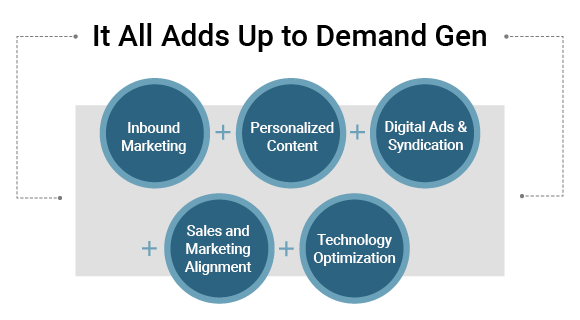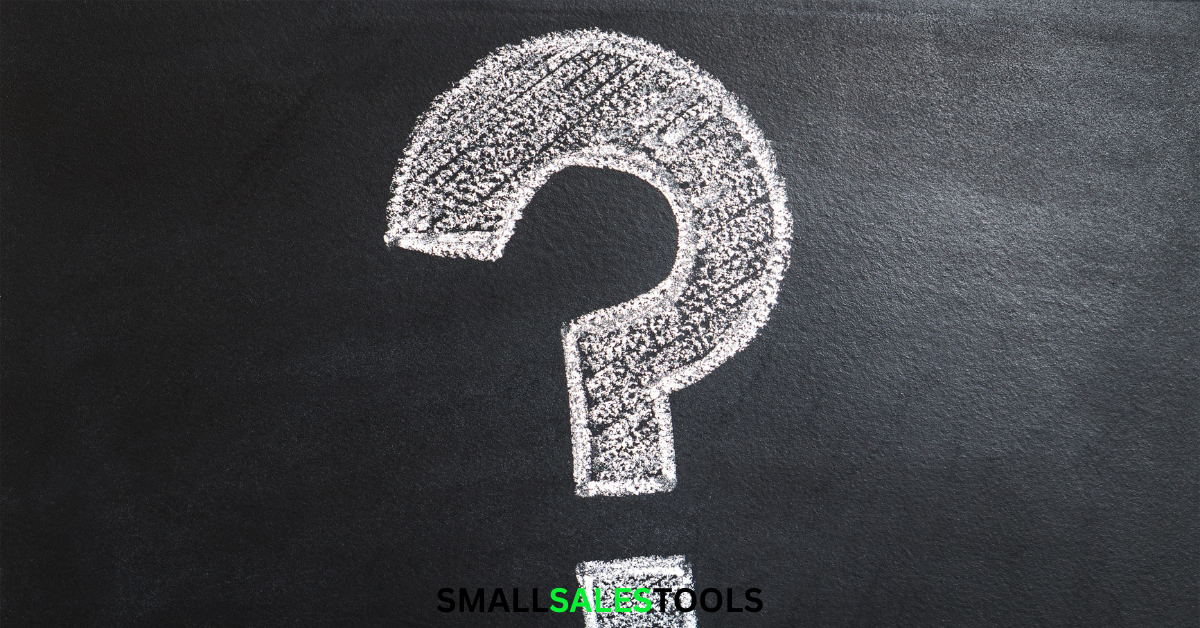Demand generation is focused on creating interest and driving demand for a product or service, while digital marketing refers to utilizing digital channels for promoting and selling products or services. Both are vital components of a comprehensive marketing strategy.
Demand generation and digital marketing are essential for businesses to attract and retain customers in today’s digital age. While demand generation aims to generate interest and create demand for a product or service, digital marketing leverages digital channels such as social media, search engines, and email to reach potential customers.
We will delve into the distinctions between demand generation and digital marketing, exploring their unique roles and the ways they intersect to drive business growth and success. Understanding the differences and synergies between these two concepts can help businesses develop more impactful marketing strategies.

Credit: www.melinakmiller.com
What Is Demand Generation?
What is Demand Generation?
Demand generation is the process of creating awareness and interest in a company’s products or services, with the ultimate goal of generating qualified leads that can be nurtured and converted into customers. Unlike traditional marketing strategies that focus on immediate sales, demand generation takes a more holistic approach by building long-term relationships with prospects.
Importance Of Demand Generation
Demand generation plays a vital role in the success of any business. Here are some reasons why it is important:
- Drives brand awareness: By utilizing various marketing channels, demand generation efforts help increase the visibility of a brand among the target audience.
- Generates high-quality leads: Demand generation focuses on attracting and engaging prospects who are genuinely interested in the company’s offerings, resulting in higher conversion rates.
- Nurtures customer relationships: Through consistent and relevant communication, demand generation strategies build trust and credibility with potential customers, encouraging them to stay engaged throughout their buying journey.
- Shortens sales cycles: Effective demand generation initiatives educate prospects about the benefits of a product or service, reducing the time it takes to convert them into customers.
- Supports revenue growth: By consistently fueling the sales pipeline with qualified leads, demand generation efforts directly contribute to increasing revenue and overall business growth.
Key Components Of Demand Generation
Demand generation is a multi-faceted approach that combines various strategies and tactics. Here are the key components involved in successful demand generation:
- Content marketing: Providing valuable and informative content that addresses the pain points and challenges of the target audience is essential in attracting and engaging potential customers.
- Lead nurturing: Developing a personalized and automated lead nurturing process helps to build relationships with leads over time, increasing the chances of conversion.
- Search engine optimization (SEO): Optimizing website content and structure to improve search engine rankings enhances the visibility of the brand and drives organic traffic.
- Social media marketing: Leveraging various social media platforms to interact with prospects, share relevant content, and engage in conversations helps to build brand awareness and generate leads.
- Email marketing: Consistently delivering targeted and valuable content through email campaigns helps to nurture leads and drive conversions throughout the sales funnel.
- Analytics and tracking: Monitoring and analyzing data from various marketing channels provides insights into the effectiveness of demand generation strategies, allowing for continuous improvement and optimization.

Credit: www.marsdenmarketing.com
What Is Digital Marketing?
Digital marketing encompasses various techniques used to drive demand and generate leads for businesses. It involves SEO, social media marketing, content creation, and email campaigns among other strategies to grow online visibility and attract potential customers.
Digital marketing encompasses all marketing efforts that involve an electronic device or the internet. It leverages various digital channels to connect with current and prospective customers.
Types Of Digital Marketing
- Search Engine Optimization (SEO)
- Pay-Per-Click (PPC) Advertising
- Social Media Marketing
- Email Marketing
- Content Marketing
- Affiliate Marketing
Benefits Of Digital Marketing
- Global Reach
- Cost-Effective
- Targeted Advertising
- Measurable Results
- Increased Engagement
Differences Between Demand Generation And Digital Marketing
Demand generation and digital marketing are often used interchangeably, but they represent distinct approaches to attracting and engaging potential customers. Understanding the differences between demand generation and digital marketing is crucial for businesses to develop effective and targeted marketing strategies. In this blog post, we will explore the nuances of demand generation and digital marketing, focusing on the subheading: Differences Between Demand Generation and Digital Marketing.
Definition And Goals
Demand generation aims to create awareness and interest in products or services, generating demand among potential customers. It focuses on building brand recognition and nurturing leads throughout the buying cycle. On the other hand, digital marketing encompasses a range of online marketing tactics to promote products or services. Its primary goal is to drive traffic, leads, and conversions through various digital channels, such as social media, email, and search engines.
Approach And Strategy
The approach to demand generation involves creating relevant and valuable content designed to engage and educate the target audience. It relies on personalized and targeted marketing efforts to capture the interest of potential customers. Digital marketing, on the other hand, utilizes a mix of tactics, including SEO, social media marketing, content marketing, and email campaigns, to reach and engage a broader online audience.
Target Audience
In demand generation, the focus is on identifying and targeting specific segments of potential customers who are likely to have an interest in the products or services offered. Personalization and relevance are key in capturing the attention of the target audience. Digital marketing tends to cast a wider net, targeting a broad audience without the same level of personalization and segmentation as demand generation.
Metrics And Measurement
In demand generation, success is often measured by metrics such as brand awareness, engagement, and the quality of leads generated. Digital marketing, on the other hand, places a greater emphasis on metrics related to website traffic, click-through rates, conversion rates, and overall return on investment (ROI).
When To Use Demand Generation Vs Digital Marketing?
Demand generation and digital marketing are two essential strategies for businesses, each serving distinct purposes in the customer acquisition process. Understanding when to use demand generation vs digital marketing is crucial for maximizing results and achieving marketing goals.
Scenarios For Demand Generation
Demand generation is especially effective in scenarios where businesses aim to create brand awareness, generate leads, and nurture prospects through the sales funnel. This strategy is ideal for capturing the attention of potential customers and building a strong foundation for future conversions.
Scenarios For Digital Marketing
Digital marketing is well-suited for scenarios where businesses need to focus on specific online channels such as search engines, social media, or email to reach a targeted audience. It is effective for driving immediate sales or conversions through targeted advertising, content marketing, and other online tactics.
Optimizing Demand Generation And Digital Marketing
Understanding the difference between demand generation and digital marketing is crucial for optimizing your online presence. While demand generation focuses on creating awareness and driving interest in your products or services, digital marketing involves utilizing various online channels to reach and engage your target audience.
By effectively combining these strategies, businesses can maximize their online visibility and generate quality leads.
Aligning Strategies
In successful demand generation and digital marketing, aligning strategies is crucial. Ensure all efforts are cohesive and centered around the target audience.
Integration And Collaboration
Integration and collaboration between the demand generation and digital marketing teams are key for a seamless customer journey and consistent messaging.
Measuring Success
Measuring success through analytics and KPIs helps in evaluating the effectiveness of campaigns and refining strategies for better results.

Credit: www.keywebmetrics.com
Frequently Asked Questions For Demand Generation Vs Digital Marketing
What Is The Difference Between Digital Marketing And Demand Generation?
Digital marketing involves various online strategies to promote products/services, while demand generation focuses on creating interest and generating leads.
What Is The Difference Between Demand Generation And Customer Marketing?
Demand generation focuses on creating interest and awareness in potential customers. Customer marketing, on the other hand, targets existing customers to drive repeat purchases and loyalty. Both aim to boost revenue through different phases of the customer journey.
What Is The Difference Between Demand Generation And Growth Marketing?
Demand generation focuses on creating interest and generating demand for products or services. Growth marketing, on the other hand, is a broader approach that encompasses the entire customer lifecycle, from attracting prospects to retaining and nurturing existing customers for sustainable growth.
What Is The Difference Between Field Marketing And Demand Generation?
Field marketing focuses on engaging directly with customers through events. Demand generation aims to create awareness and interest in a product or service to drive sales.
Conclusion
In essence, while demand generation focuses on creating interest and driving engagement, digital marketing involves leveraging online channels for promotion. Understanding the distinctions between these strategies is crucial for optimizing marketing efforts in today’s competitive landscape. Integrating both can result in a powerful and comprehensive approach.




